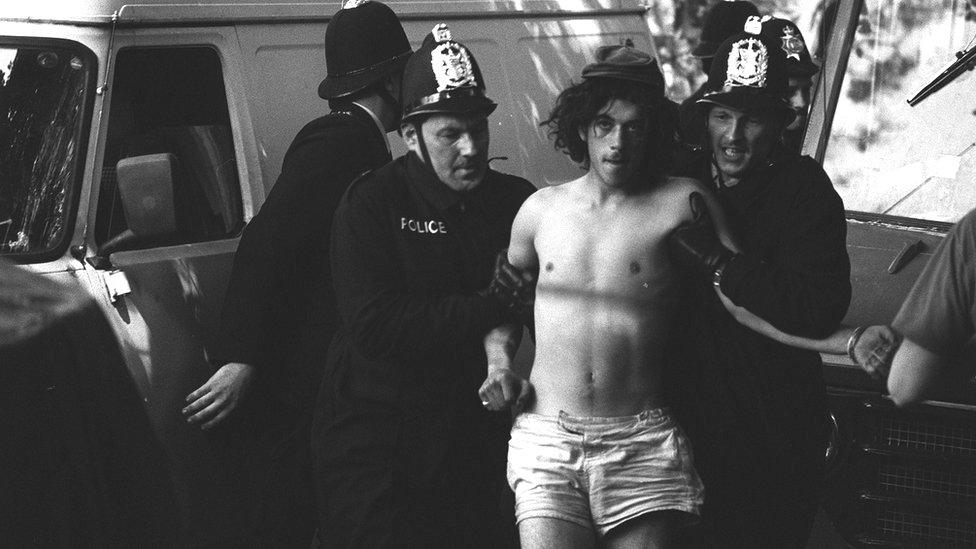'Drunken behaviour' prompts Stonehenge solstice alcohol ban
- Published
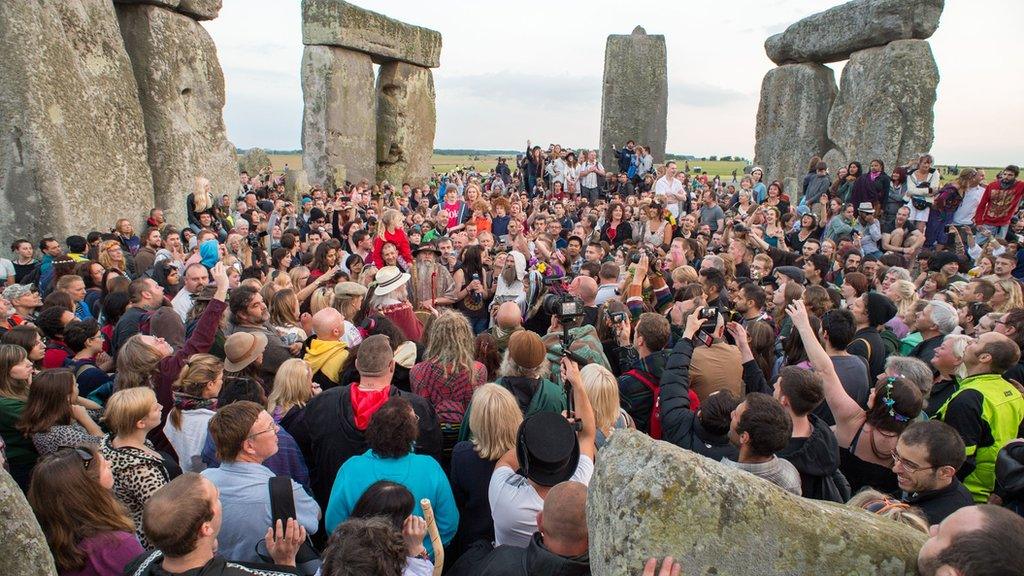
English Heritage said the ban will help it "better look after both those attending the solstice and the ancient monument itself"
Revellers at Stonehenge will face a ban on alcohol at this year's solstice celebrations.
English Heritage said it had seen more "drunken and disrespectful behaviour" as crowds had increased each year.
It hopes the alcohol ban will help "better look after" both those attending the solstice and the ancient monument.
A £15 charge per vehicle is also being introduced to encourage more people to car share or travel by bus.
Senior druid, King Arthur Pendragon, previously said any charge would be a "Pay to Pray policy" and he would fight the "total ban on alcohol".
'Annual vandalism'
English Heritage said it was "mindful" of the practices of some druid and pagan groups who use alcohol as part of their ceremonial practice, and will consult on how moderate use of ritual alcohol might be incorporated into the new policy.
It also pledged to keep access to the monument free during the celebrations, despite growing attendances.
Kate Davies, Stonehenge's general manager, said: "Something has to be done or we risk losing what makes solstice at Stonehenge so special."
In 2000, approximately 10,000 people attended the solstice, while in 2014, the figure was close to 40,000.
That same year, the stones were vandalised during both the summer and winter solstice celebrations.
Despite it being illegal to damage the monument, last year the Heritage Journal wanted revellers banned from getting close to the stones in a bid to prevent the "annual vandalism".
- Published5 February 2016

- Published22 December 2015
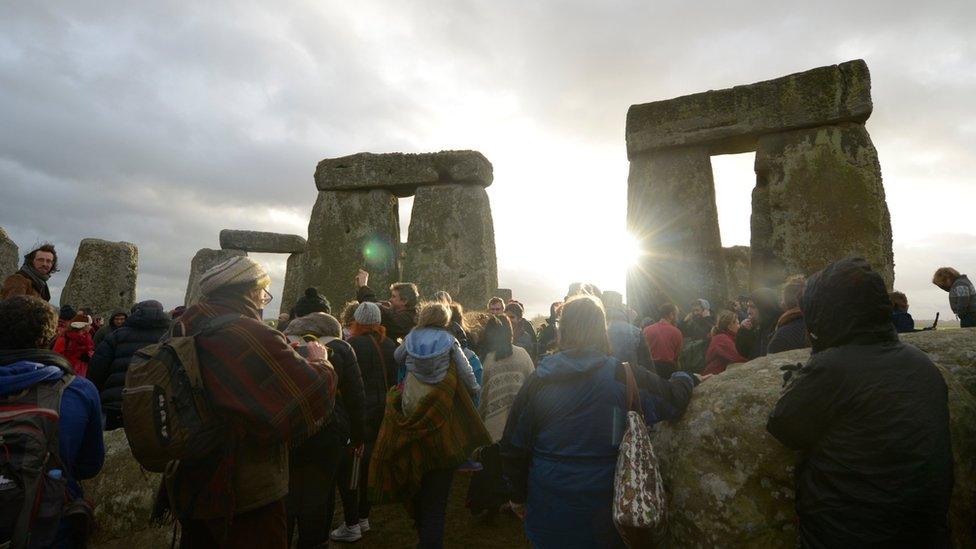
- Published21 June 2015
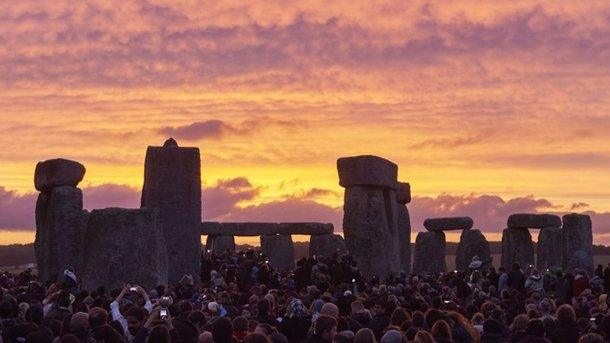
- Published5 March 2015
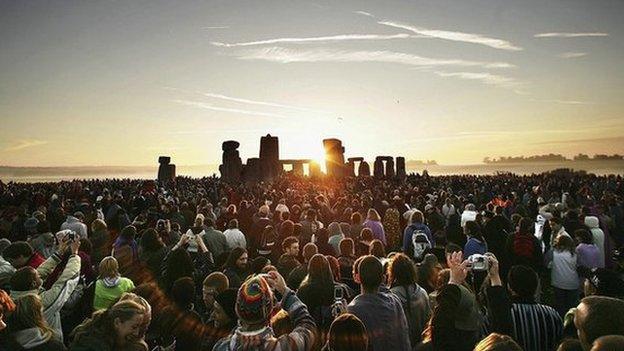
- Published25 February 2015

- Published20 June 2014
